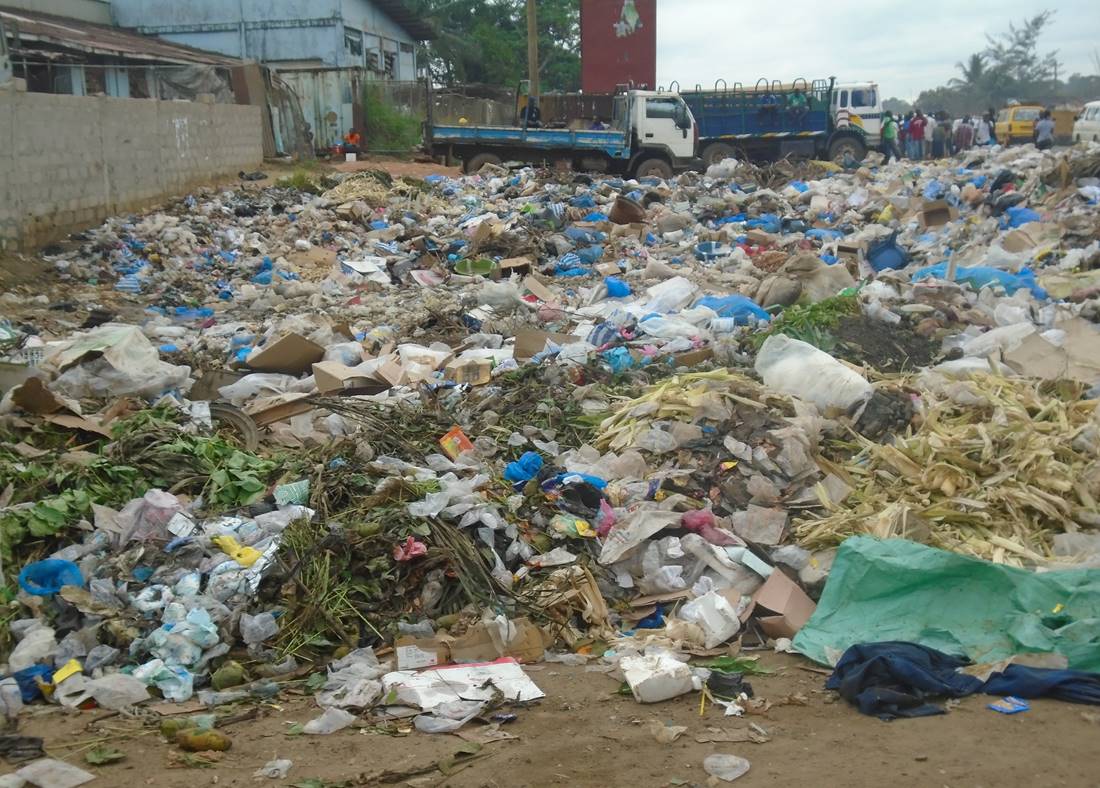-MCC, Support Partners must redesign Garbage Disposal Strategies
By Edwin M. Fayia, III,fayiaedwin@gmail.com
Several research and environmental studies have shown that from all indications, the wanton and indiscriminate disposal of garbage in general and used plastic bags and other medical wastes in particular, are indeed some of Liberia’s worst menace and nightmare.
According to studies and research works conducted by some independent sanitation and environmental institutions in and out of Liberia, past and present garbage collections and disposals have not produced substantial and genuine results in most urban cities.
On top of that, majority of recommendations advanced to past and present municipal governments have on many occasions either been placed in the dustbin or swept under the carpet.
However, it must be stated that past and present municipal governments in some rural and urban cities have crafted strategies aimed at addressing the problems of uncontrollable plastic bags and other wastes, nonetheless with very little tangible results.
But, it is yet to be seen of stakeholders and municipal governments the of other practical strategies that could enhance the collection and disposal of plastic bags and dangerous medical wastes in their municipalities.
Not to overly emphasize, the issue of plastic bags and medical waste disposals must be treated as matters of immediate urgency by the highest official seat of the Liberian Government, heads of sanitation and environmental institutions and the municipal governments of rural and urban cities.
In almost all of Liberia’s rural and urban cities, plastic bags, garbage of many kinds and some quantities of medical wastes are often seen here, there and yonder simply owing to the fact that they are disposed of in unacceptable manners by community inhabitants.
Interestingly, it is stated that the key to the cleanliness of rural and urban cities in Liberia lies squarely in the hands, minds and attitudes of the hundreds of Liberians and others residing in the country.
Besides, sanitation experts, as well as, rural and planners have on many occasions proffered that the Liberian Government must find potential investors and business minded citizens to invest in the recycling industry in order to minimize the manner in which plastic bags and other wastes are being deposed of in the country.
Consequently, the Monrovia City Corporation (MCC), support partners, Environmental Protection Agency (EPA) and other critical stakeholders in the sanitation and environmental sectors of must rise now to the task and redesign the entire processes that lead to the collection and disposal of wastes in all parts of the country.
Admittedly, some of the major contributors to the sanitation and environmental threats are the organized used iron depots in hundreds of rural and urban cities, garages of various kinds and the thousands of community dwellers.
Indeed, it is also reliably learnt that specialists in the sanitation and environmental sectors in most cases are not provided the enabling environment to conduct Environment Impact Assessments with respect to the creation of dumpsites.
Moreover it is worth cautioning that the numerous generous support from partners insist that projects to line ministries, agencies and nongovernmental organizations be made to use all of their professional and technical expertise in order to yield tangible results.
Many Liberians, sanitation specialists and environmental campaigners have argued over the years that Liberians in all parts of the country develop and muster the courage and accept practical behavioural changes in the disposal of plastic bags and other wastes.
A practical approach could be to enforce all municipal laws and regulations associated with the collection and disposal of mainly plastic and other dangerous medical wastes across the country.
Sadly, however, the capital Monrovia, Municipal Government, critical support partners and Liberians in general continue to treat the threats with the century-old strategy of using women and girls to sweep and gather plastic bags for onward disposal to designated dumpsites.

